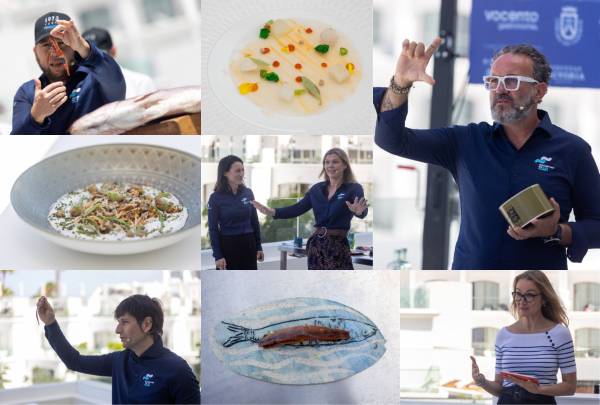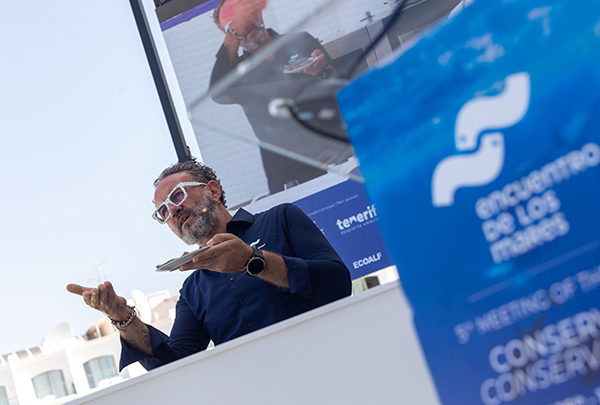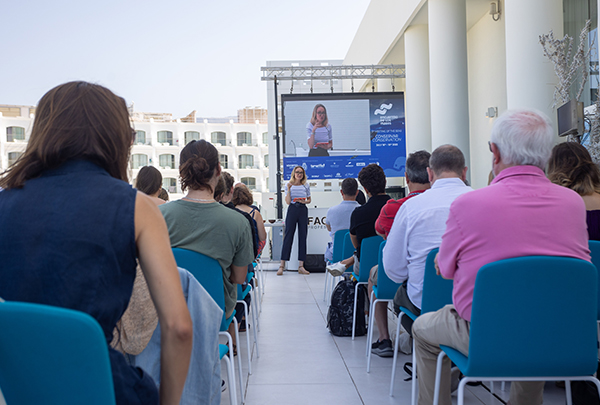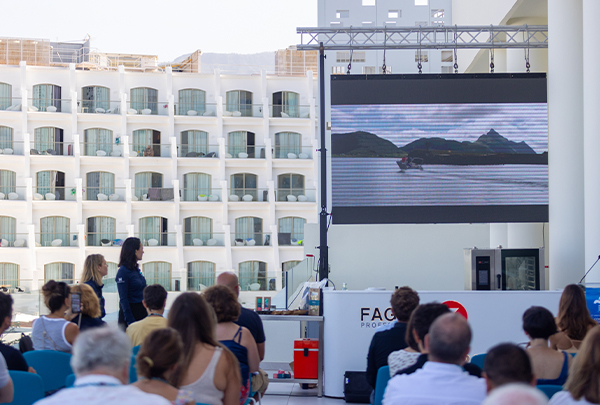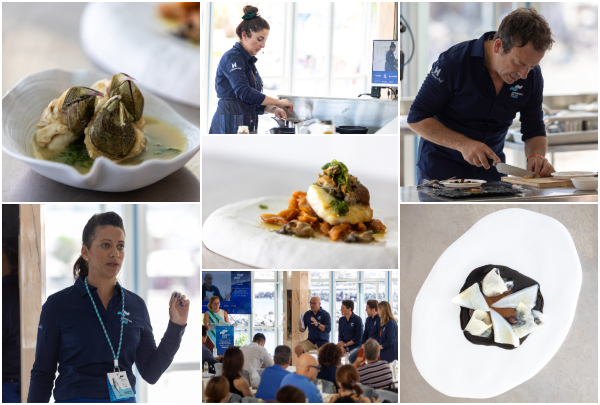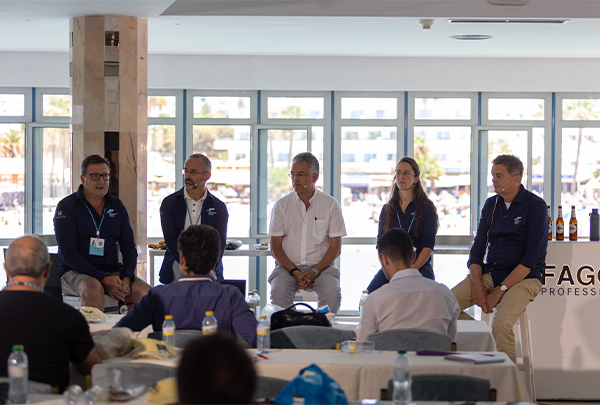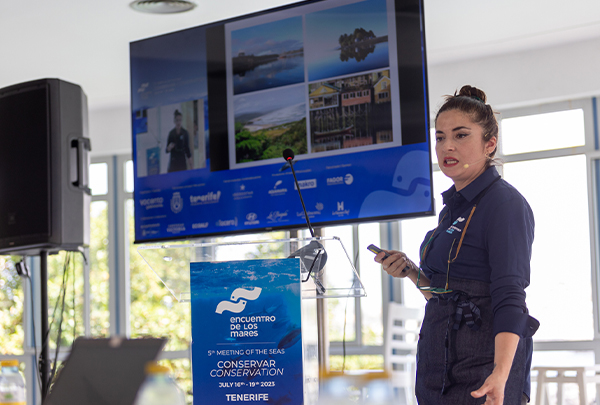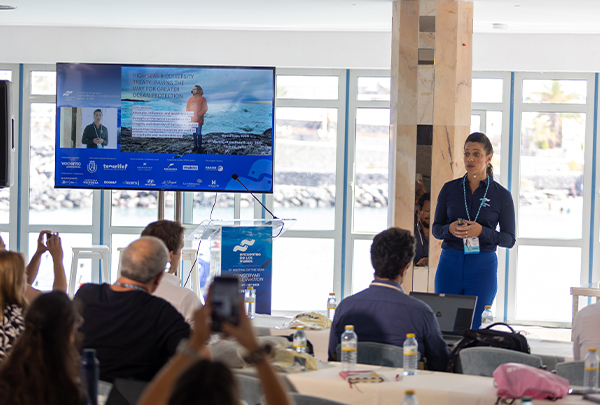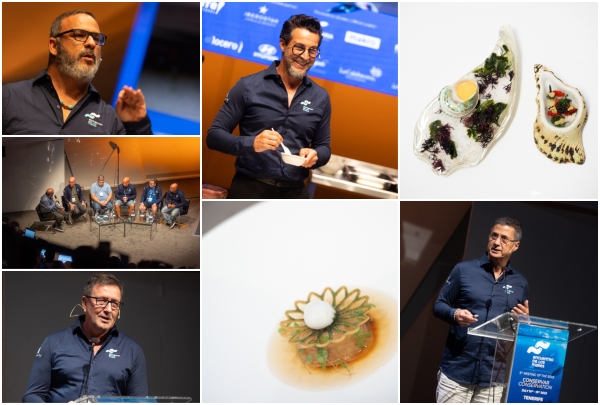News
Carlos Duarte: “It's been a super year for the oceans”
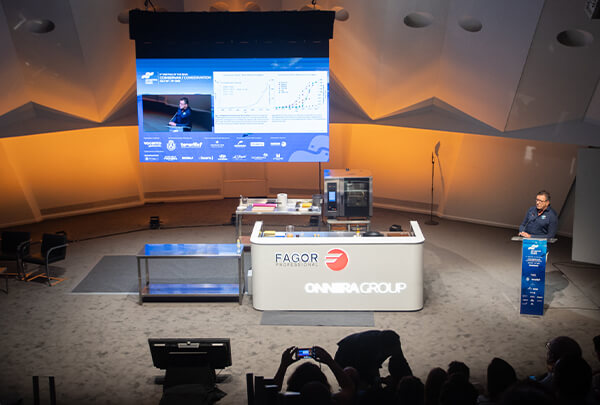
The talk by Carlos Duarte, professor of Marine Sciences at Saudi Arabia's King Abdullah University of Science and Technology (KAUST) and scientific director for Meeting of the Seas, provided an overview of why this year's congress is given over to ocean conservation.
In the wake of the historic agreement struck at the UN in March for ocean protection with the 'High Seas Treaty', concerns with the recovery of blue capital has been taken on board by all nations, a feat unheard of before, and according to Duarte this means "a new era is beginning in which it no longer serves any purpose to merely talk about what we should do, but we have to take action".
The new framework for conservation of marine biodiversity sets out to reverse the enormous plunge in biodiversity over the last 30 years of the 20th century. “We've lost half our natural blue capital", explained the scientist as he listed the attempts made during the 1980s to reverse the situation, which "have made some progress, but not enough. Let's remember that when a new policy is introduced, it takes about 20 years for us to notice the effects on recovery of the oceans", warned Carlos Duarte.
Some of the pressure of fishing has been taken off the oceans, progress has been made in water cleansing, and there has been some improvement in the nitrates and phosphates creating dead areas in oceans, but sea pollution is still a problem, and now new challenges have emerged such as climate change and its effects. The professor claims that we have now arrived at a key juncture in the fight for conservation - "there has been an exponential increase in work to conserve the ocean" - but many objectives have still not been met nevertheless. “The erosion of biodiversity was supposed to have been arrested between 2015 and 2020, but only 5-10% of the objectives set have been met". Poor results. This is why Duarte is calling for "more ambition", and "a new vision of how we operate on the planet, to bring about 30% of highly protected areas, a number of areas densely transformed by human activity (cities), and another large section where we can still have the environment and interact with it".
In this sense, last year was "a super year for the oceans", Duarte claims. Recent agreements have been struck in this area towards the ultimate objective of recovering marine biodiversity by the year 2050: an agreement was reached to eliminate pollution in the ocean by means of a legal framework in the year 2024, the UN Oceans Conference in Lisbon called for more action to be taken, and the World Trade Organization approved a treaty to do away with subsidies funding illegal or irregular fishing; and in December the new global biodiversity framework was approved, with the intention of eliminating biodiversity loss by 2030, protecting 30% of the ocean, and restoring 30% of degraded habitats.
The main stumbling block in meeting all these objectives is economic. 200 billion euros have been committed to meet these goals, on land and in the oceans, but the truth is that "for the oceans alone the investment package required would be three times that amount". To achieve success, Duarte believes there is only one way forward: “we have to make investment in nature profitable".

